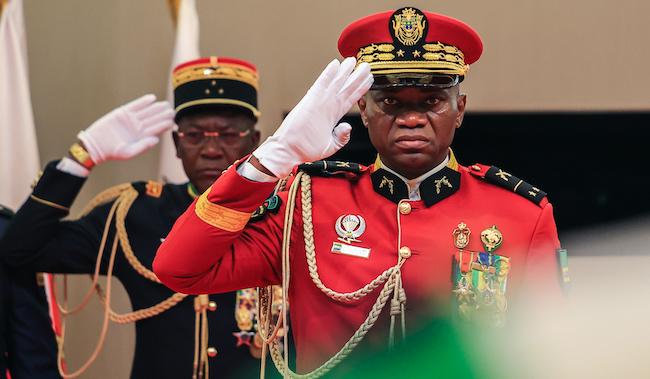As uncertainty grows over what will become of the Republic of Niger in its standoff with the Economic Community of West African States (ECOWAS) over the military overthrow of its civilian regime, the world woke up on Wednesday 30 August to the news of another power seizure in Gabon.
As was the case in Niger, young people have taken to the streets embracing the military boys for coming to their rescue. An abnormality, a minority of people in Africa will say. A perfectly welcome development, the majority appears to be saying.
Switching on my reflective mood, I’m trying to make sense of how people could consider as normal something that ought to be an aberration. I was barely 6 months old in January 1966, when the first military power grab took place in Nigeria, my birth country. For some 34 years, military rule held sway in Africa’s most populous country. To a large extent, I could be rightly described not only as a ‘war child’ but also as a product of a military environment. To say the least, it is traumatizing and perhaps psychologically deforming.
Besides textbook theories of the meaning of democracy, my generation of Nigerians only started learning in practical terms what true democracy is all about as from 1999. Some of us are adaptable but for very many of us, in our mid to late 30s, it was too late. Brut force, violence, getting things the hard way, lack of inner peace, aggression, anxiety disorder, and other problems have formed our psych. But not all of us!
While some of us believe that these irregularities are normal, others consider them grossly abnormal. So we understand it when both young and old take to the streets embracing the military because they said they are the new messiahs that will bring them the good life and prosperity that have eluded them for way too long. When Bob Marley of blessed memory talked about chasing away the crazy baldheads out of the town, I now know that he was talking of no others than these African leaders that have determined that the children of Africa will never see or know peace.
The list is a mixed bag ranging from the often revered Gadaffi, who took over power by force in Libya, hang on there for 42 years and was killed rather than giving up power. We can’t forget Omar Bongo (Gabon) either who remained in power for over four decades. Obiang (Equatorial Guinea) is doing 44 years and counting while preparing his son, the Vice-President to step in at any given moment.
What about Museveni (Uganda) who has spent 38 years so far and won’t tolerate any opposition? We can’t loose sight of Paul Biya (Cameroon), can we? He’s been around as president for over 40 years and counting. But for a 4 year hiatus, Dennis Sassou Nguesso (the Republic of the Congo, Brazzaville) has held sway for 39 years.
Do these abnormalities justify disruption of the constitutional orders? No, not at all! While some of us maintain that a military coup is and remains an aberration, we understand the psychology of those who applaud the military boys for stepping in. The cliché that those who make peaceful coexistence difficult only makes violent dissent inevitable comes to one’s mind.
In all these cases, some interesting queries around reshaping the world order are emerging. From the question of how well Western democracy is right for Africa, given that it was forced on Africa after the decolonization, to neo-imperialism and its impact on slowing Africa’s growth. And many more questions. These are all germane issues deserving of a thorough investigation. But they should not be mixed up with the menace of power seizure with the barrels of the gun.
To demonstrate the nature of military coups as an aberration, those who carry out them are often in denial mode. An instance is Zimbabwe in 2017, when a military takeover brought Robert Mugabe’s 37-year rule to an end. Major General Sibusiso Moyo, who was one of the masterminds of the operation, appeared on television at the time, flatly denying it was a military takeover. In April 2021 after the death of the Chadian leader, Idriss Déby, the army installed his son as interim president, leading a transitional military council. His opponents called it a “dynastic coup”, not a classic one!
Two US researchers, Jonathan Powell and Clayton Thyne, have probably provided the most plausible explanation for this denial. In their book from 2011 (Global Instances of Coups from 1950 to 2010), they concluded that coup leaders almost invariably deny that they have carried out a coup simply to appear legitimate. One illegitimacy can not correct another or a hundred illegitimate actions.
My realist friend from South Africa, Adetunji Omotola, was blunt on the matter of coups in Africa when he asserted that he sees all dictatorships collapsing as a result of military power grabs.
Irrespective of which side of the divide one is, it is undeniable that the time is ripe for the exit of both the dictators and the imperialists that have clandestinely sustained them in power for so long. The tendency to look the other way by those who consider a coup an aberration is growing as well but a question mark hangs over the sincerity and capacity of the juntas to stay in power.
Stay ahead with the latest updates!
Join The Podium Media on WhatsApp for real-time news alerts, breaking stories, and exclusive content delivered straight to your phone. Don’t miss a headline — subscribe now!
Chat with Us on WhatsApp




